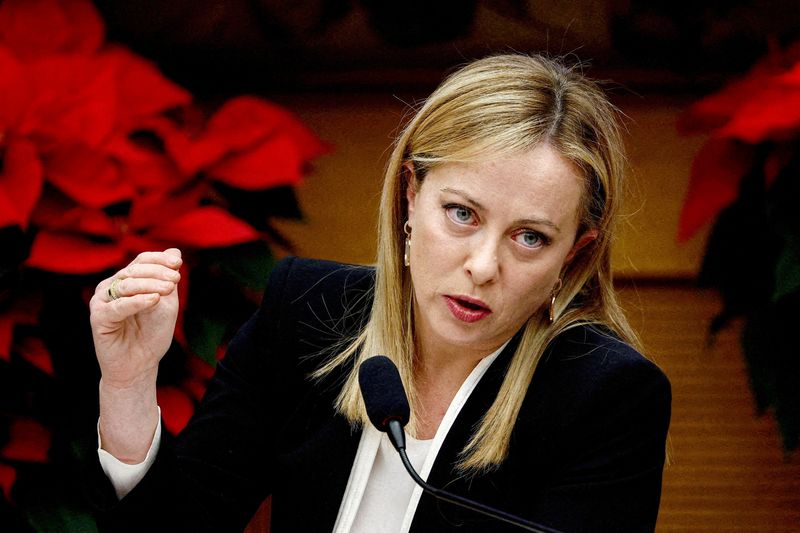ROME (Reuters) -Italian Prime Minister Giorgia Meloni has written to German Chancellor Olaf Scholz telling him she learned with "astonishment" of a German government initiative to finance migrant charity groups operating in the Mediterranean.
The right-wing Meloni is pursuing a hard line against illegal immigration but Italy has seen a surge in migrant arrivals this year with some 133,000 coming ashore so far against around 69,800 in the same period in 2022.
Meloni's letter is dated Sept. 23 and was made public after Defence Minister Guido Crosetto, a senior figure in Meloni's Brothers of Italy party, also took aim at the German government for supporting the charities in an interview on Sunday.
Meloni's letter to Scholz, seen by Reuters, said: "I have learned with astonishment that your administration - without coordinating with the Italian government - has allegedly decided to support with substantial funds non-governmental organisations engaged in the reception of irregular migrants on Italian territory and in rescues in the Mediterranean Sea."
A spokesperson for the German foreign ministry said on Friday Berlin was implementing a parliamentary financial support programme for both civilian sea rescue and projects on land, and had completed the review of two applications.
The ministry also said rescuing people at sea is a "legal, humanitarian and moral duty".
Meloni last week signed off on new measures to lengthen the time migrants can be detained and increase the number of detention centres in an effort to deter them from embarking on sea crossings from North Africa.
Her government also ruled migrants would have to pay to avoid detention while their request for protection is being processed.
"I believe that the efforts, including financial, of EU nations interested in providing concrete support to Italy should rather focus on building structural solutions to the migration phenomenon," Meloni said in her letter to Scholz.

She said Germany, governed by a centre-left coalition, should rather concentrate on assisting migrants on its own soil, adding that the presence of charity boats at sea can incentivise migrant trips that often result in shipwrecks and casualties.
Charity groups have denied that their rescue boats act as a "pull factor" for migrants to set sail for Europe.